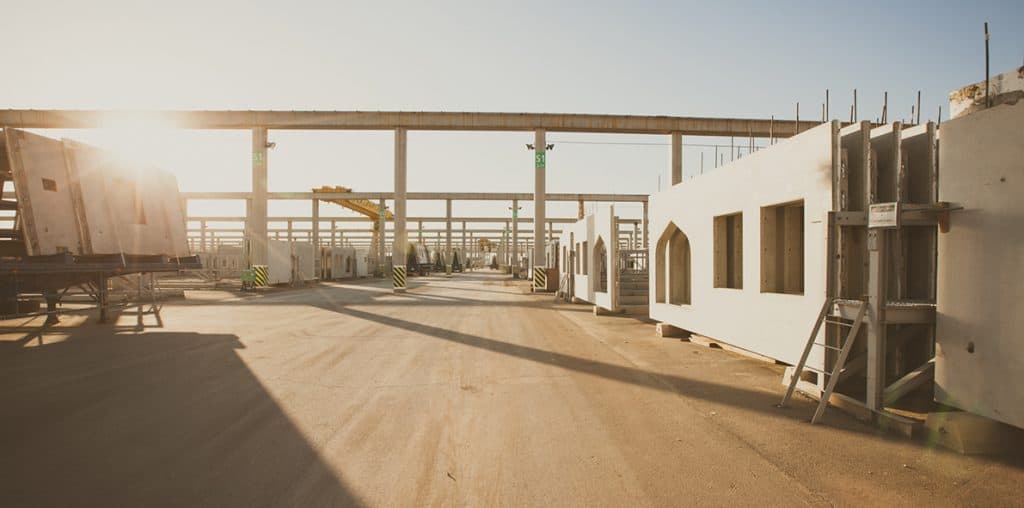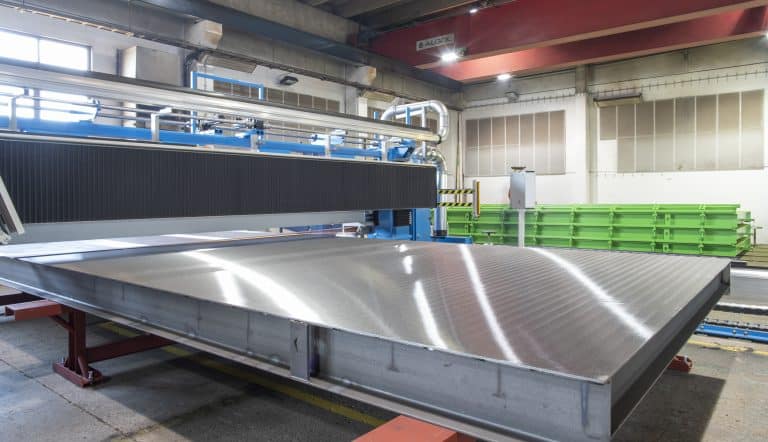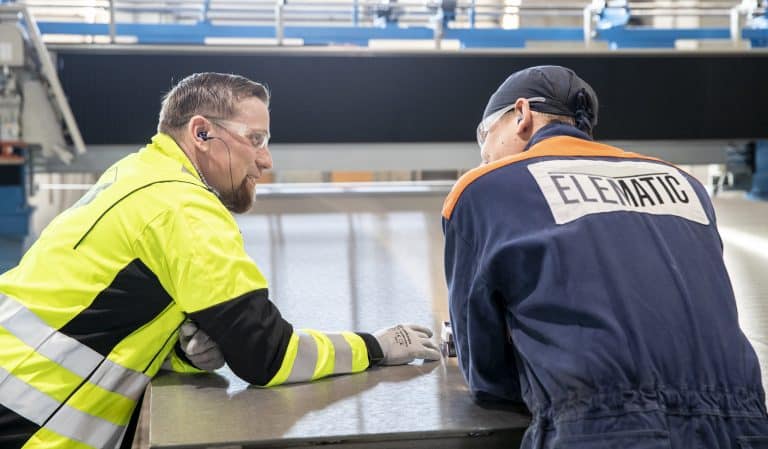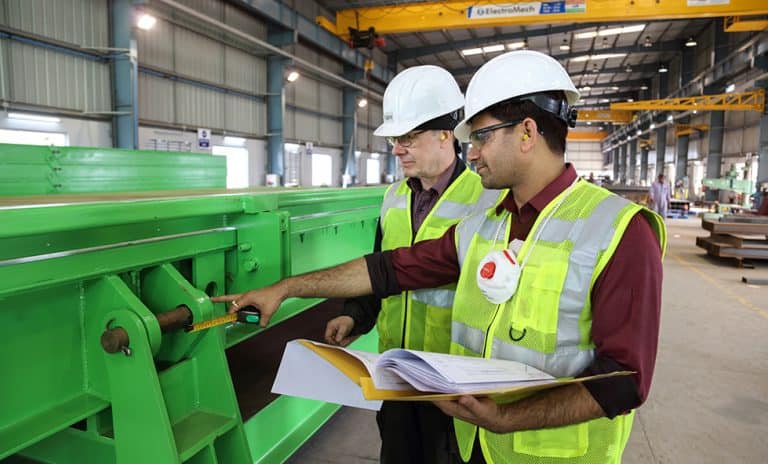Right choice of table ensures high quality of precast wall panels

When manufacturing precast wall panels, the choice of the table affects not only the quality of the end product, but also the efficiency of the production process.

When choosing tables for precast wall production, the most important properties to be considered are their planarity and rigidity. These properties are important in the production of level, dimensionally accurate end products of high quality. The surface of a finished wall panel should be even and straight. This is ensured through the use of high-quality steels, treated level surface boards, good manufacturing techniques and professional welding.
‘If the table is uneven, the finished wall panels will be the same. This is manifested as unevenness in the outer walls of a building’, explains Ismo Kallio, Product Director at Elematic.
Rigidity means that to ensure the straightness of the end product, the table may not bend too much in either the longitudinal or transverse direction. The rigidity of the table is a prerequisite for the use of a circulating line, since if the table bends too much, the end product may become fissured. If the bend is considerable, the table might not even move on the line.

Choices of table to be considered in production line design
Besides the quality of the end product, the choice of table also affects the efficiency of the production line. The table should always be chosen on the basis of the needs, and the production line should be designed to complete the planned products as efficiently as possible.
‘For example, in the making of very large wall panels whose share of total production is very small, there is no point in dimensioning the circulating line by the largest panel, as this would lead to high production costs. In such cases, the most efficient solution is often to use the smaller tables in a circulating line for the standard products, while the larger and special products are produced with specifically designed tilting tables or other solutions’, Kallio explains.
In other words, the production line is optimised not only by the different end products, but also by their production shares. Several factors need to be taken into account in the planning. Elematic’s experienced professionals help in finding the best overall solution.
In addition to various tables, Elematic also supplies battery and special moulds, which are always designed in accordance with the production and panel requirements.
Final inspection of tables guarantees top quality
Elematic pays special attention to the quality control of its tables in order to guarantee the uniformly high quality of wall elements.

“We ensure our quality remains uniform by inspecting each table after its completion. In this way, we can minimise all types of dents and unevenness on the surface of finished products”, explains Quality Manager Toni Koitmaa from Elematic.
He stresses the primary importance of following quality requirements in the manufacturing process, as it is extremely difficult to correct the tables afterwards.
Defined processes and measurement instructions drawn up for quality control purposes ensure that the quality control procedures are consistent and accurate in all countries of production
“The documents filled in during the inspection process require that every needed point is checked properly. This kind of strict quality control procedure translates into finished tables complying with the tolerance measurements specified in the drawings. Otherwise the documents would show that, for instance, the flatness of the tables does not meet with the requirements outlined in the drawings and the product would not move into delivery stage”, Koitmaa adds..
“There is at least one person in charge of quality in all production units, appointed to implement quality control procedures and to fill in and archive inspection documentation. In addition to this, itinerant quality controllers carry out spot checks both on subcontractor lines and our own production units. We can confidently state that the quality of our tables is at the 100% level, thanks to the advanced processes and inspection documentation”, Koitmaa sums up. “It also says something about the quality of the tables that they last in good working shape for as long as 30 years. We are quite proud of this fact as I think it’s really important for the factories that their investments have a long lifetime“.
ORDER OUR NEWSLETTER OR CONTACT US!
or